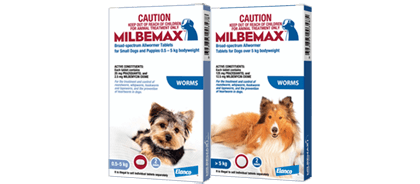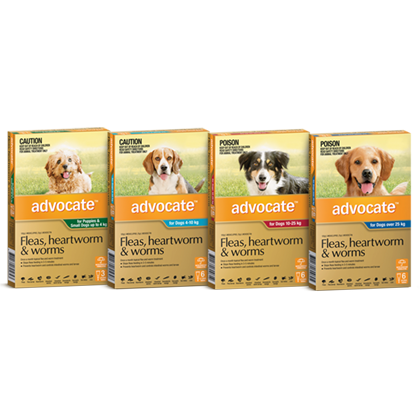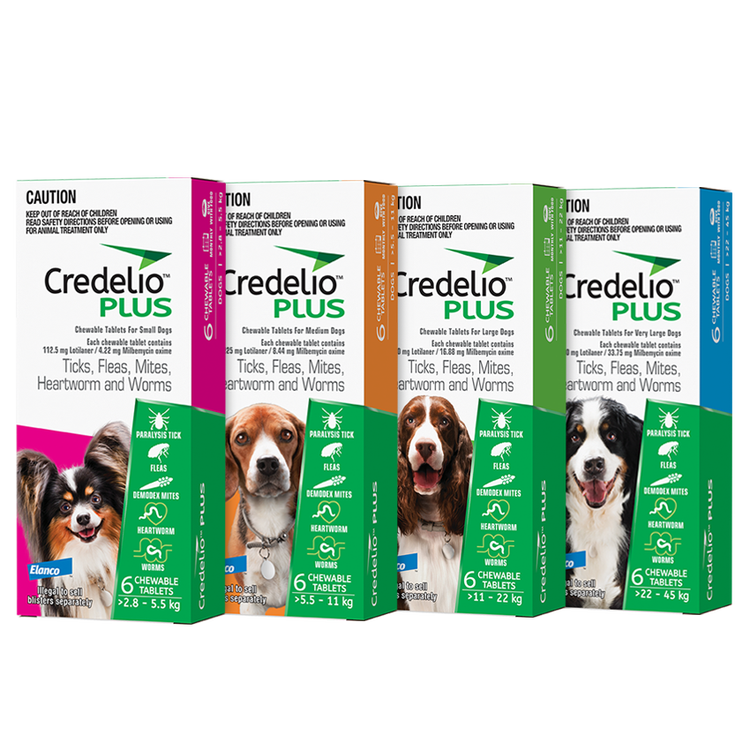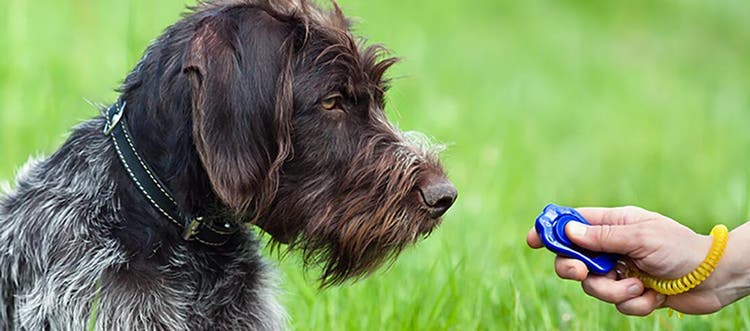Where is your dog most likely to pick up a hookworms? What damage can they do? How can you get rid of them? Get to know hookworm before your dog does.
Understanding hookworm in dogs and puppies
Hookworms are unpleasant and dangerous parasites that can live inside an infected dog’s intestine. While they typically cause mild symptoms in adult animals, they can be much more serious in puppies.
Once inside your dog, hookworms ‘hook’ themselves onto the wall of your pet’s small intestine and feed on its blood, leaving small ulcers where they’ve been attached. The blood loss can be very severe, even life threatening in puppies.
How your dog can get hookworm
Infected dogs pass hookworm eggs out with their faeces. These eggs hatch into larvae (immature hookworms). Your dog can become infected by swallowing hookworm larvae when sniffing, digging or playing amongst contaminated dirt or grass. Hookworm larvae can burrow through your dog’s skin, particularly their paws, which can become sore and inflamed. Dogs can also become infected with hookworm larvae from eating infected animals like rodents or birds.
Once in the dog’s gut, hookworm larvae grow into adult hookworms and latch onto the gut wall to feed and lay new eggs, starting the cycle all over again.
Sometimes hookworm larvae find their way into dogs’ muscle where they become dormant and escape regular worming treatments. These larvae can later become reactivated. When this happens during pregnancy, the reactivated larvae can travel to the mammary gland and infect puppies through their mother’s milk. This is why it is so important to regularly worm your puppy.
Did you know?
Hookworm can affect humans, too. People can become infected by ingesting hookworm larvae, or by larvae in the soil burrowing into our skin - this causes irritation of the skin and can result in gastrointestinal disease if the larvae reach the intestine. One of the hookworms, A. ceylanicum, can even grow and develop in peoples' intestines, and pass the eggs in the stool, continuing infection to the family.
Signs of a hookworm infestation
Dogs with hookworm infestation may have:
- Pale gums (caused by anaemia)
- Fatigue
- Loss of appetite
- Unexplained weight loss
- Diarrhoea (may be bloody)
- Faeces that are dark or look like tar
Your vet can make a diagnosis by looking for hookworm eggs in a faecal sample from your dog and checking your dog for anaemia with a blood test.
How to prevent hookworm in your dog
Picking up, bagging and disposing of your dog’s faeces will help reduce contamination in your garden or the local park of hookworm larvae (as well as the larvae and eggs of other dog parasites).
It’s also highly recommended to use a regular deworming treatment.
Up to 8 weeks of age
Many puppies are infected with hookworm from their mother’s milk, so it’s important to start treating them from 2 weeks of age. MilbemaxTM tablets are an example of a popular product for deworming dogs, including young puppies, and has been trusted by vets for over 20 years. Milbemax can be used in puppies from 2 weeks of age and 0.5kg.
From 8 weeks of age
From 8 weeks of age, the ideal approach to deworming will vary depending on factors like location, your dog’s health and lifestyle, and the type of treatment you prefer. Options include:
- continue with Milbemax tablets for protection against hookworm and all other major gastrointestinal worms (refer to label for dosing recommendations)
- apply AdvocateTM spot-on monthly (from as early as 7 weeks of age) for protection against hookworms, roundworms and whipworm, as well as fleas, mites and heartworm
- give Credelio PLUSTM chewable tablets monthly for protection against most hookworms, roundworms and whipworm, as well as fleas, ticks, mites and heartworm.
For more information on the best way to protect your puppy from hookworms and other parasites, consult your veterinarian. You can also get more information on the deworming process here.
Always read and follow label directions.

Milbemax™ worming tablets for dogs
Milbemax™ tablets for dogs protect against all the most common worms your dog will come into contact with, including tapeworm.

Advocate for dogs
Advocate provides fast relief from fleas, prevents deadly heartworm and helps protect your dog and your family from most intestinal worms

Credelio™ Plus 4 in 1 protection in the smallest chew
Keeps your dog protected from ticks, fleas, demodex mites PLUS heartworm and intestinal worms.






